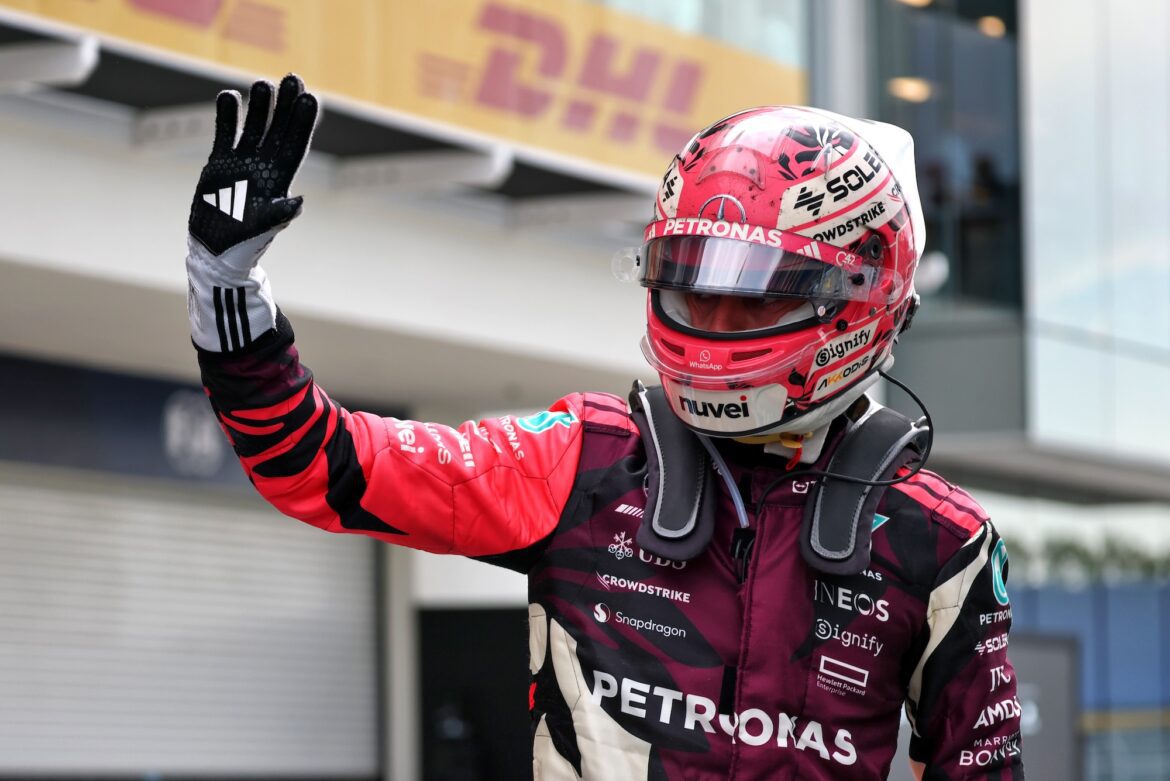The Hidden Challenges of Life as a Formula 1 Driver: Insights from George Russell
George Russell, a prominent driver for Mercedes in Formula 1, recently opened up about the less glamorous aspects of life in the fast lane. In a candid discussion, he shed light on the demanding lifestyle that comes with being a top-tier driver, revealing the emotional toll and isolation that often accompany the pursuit of racing excellence.
From a young age, Russell has been immersed in the world of motorsport. He left school at just thirteen, a decision that led to a unique but often solitary existence. “Honestly, I have very few friends,” Russell admitted. This lack of social connections is a stark reality for many drivers, who frequently find themselves in different hotels, countries, and time zones. The constant travel and the pressures of competing at such a high level can create a sense of detachment from the world outside the racetrack.
Despite the fame and prestige that comes with being an F1 driver, Mondays are particularly tough for Russell and his peers. He described them as “days of emotional hangover,” where the highs of a successful race can quickly turn into a painful reflection if the results are disappointing. This rollercoaster of emotions is a normal part of the sport, but it can be overwhelming. “It’s a slap in the face whether you’ve done well or poorly,” he explained, highlighting the intense mental strain that accompanies each race weekend.
To cope with the emotional ups and downs inherent in the sport, Russell has found solace in simple activities outside of racing. He mentioned that he enjoys playing padel, a racquet sport, as a way to clear his mind. “I prefer to engage in something physical rather than getting lost in social media,” he noted. This approach allows him to momentarily step away from the pressures of Formula 1 and focus on personal well-being.
The support of loved ones is crucial for athletes, and Russell is no exception. He expressed gratitude for the presence of his girlfriend, Carmen Montero Mundt, in his life. “I feel lucky to have her by my side,” he said, emphasizing her role as his emotional anchor in an often unstable and demanding environment. Having a strong support system is vital for maintaining mental health, especially in a sport where the stakes are incredibly high.
Russell’s reflections reveal a more human and vulnerable side of life as a Formula 1 driver. While the sport is often associated with speed, glamour, and success, the reality includes significant sacrifices and moments of intense loneliness. The pursuit of excellence in racing demands not only physical prowess but also emotional resilience.
For aspiring drivers and fans alike, understanding these challenges offers a deeper appreciation for the dedication and commitment required to thrive in the world of Formula 1. It’s easy to admire the skill and talent of drivers during race weekends, but the behind-the-scenes struggles often go unnoticed.
In addition to the emotional aspects, the physical demands on drivers are immense. The rigorous training regimes and the need to maintain peak fitness levels add another layer of complexity to their lives. Russell and his fellow drivers dedicate countless hours to physical conditioning, ensuring they are prepared for the grueling demands of racing. This commitment to fitness is not just about performance on the track; it’s also about the long-term health and well-being of the athletes.
The life of a Formula 1 driver is undoubtedly filled with excitement and opportunity, but it also comes with unique challenges that can take a toll on mental health and personal relationships. The balance between professional aspirations and personal fulfillment is delicate, and many drivers find themselves navigating this complex landscape throughout their careers.
Russell’s openness about his experiences serves as a reminder that even those at the pinnacle of success face obstacles and hardships. The glamour of the podium finish often overshadows the struggles faced in the days and weeks leading up to it. For fans, this insight can deepen their understanding of the sport and the individuals who compete in it.
As Formula 1 continues to grow in popularity, the conversations around mental health and emotional well-being in sports are becoming increasingly important. Athletes, including drivers like Russell, are beginning to share their journeys more openly, fostering a culture that prioritizes mental health alongside physical performance. This shift is essential for the future of the sport, as it encourages a more holistic approach to athlete care.
In conclusion, George Russell’s candid reflections on life as a Formula 1 driver illuminate the intricate balance between success and sacrifice. His experiences highlight the emotional challenges that come with the territory, reminding us that behind the wheel of a powerful car, there is a person navigating their own set of struggles. As the world of motorsport evolves, it is crucial to continue these conversations, ensuring that the well-being of athletes remains a priority in the fast-paced world of Formula 1.
